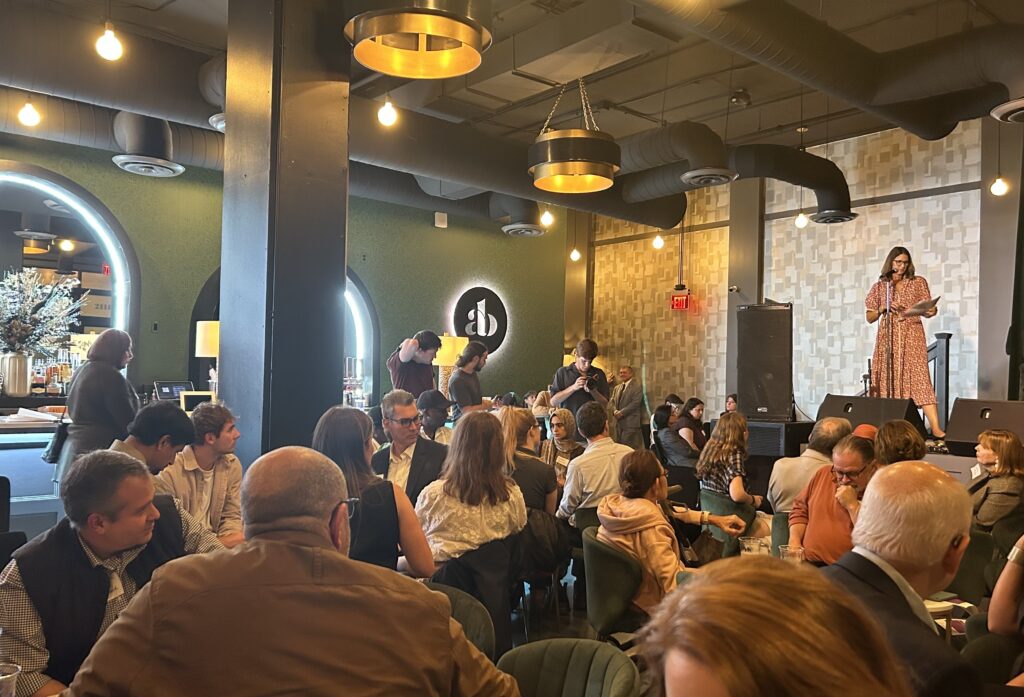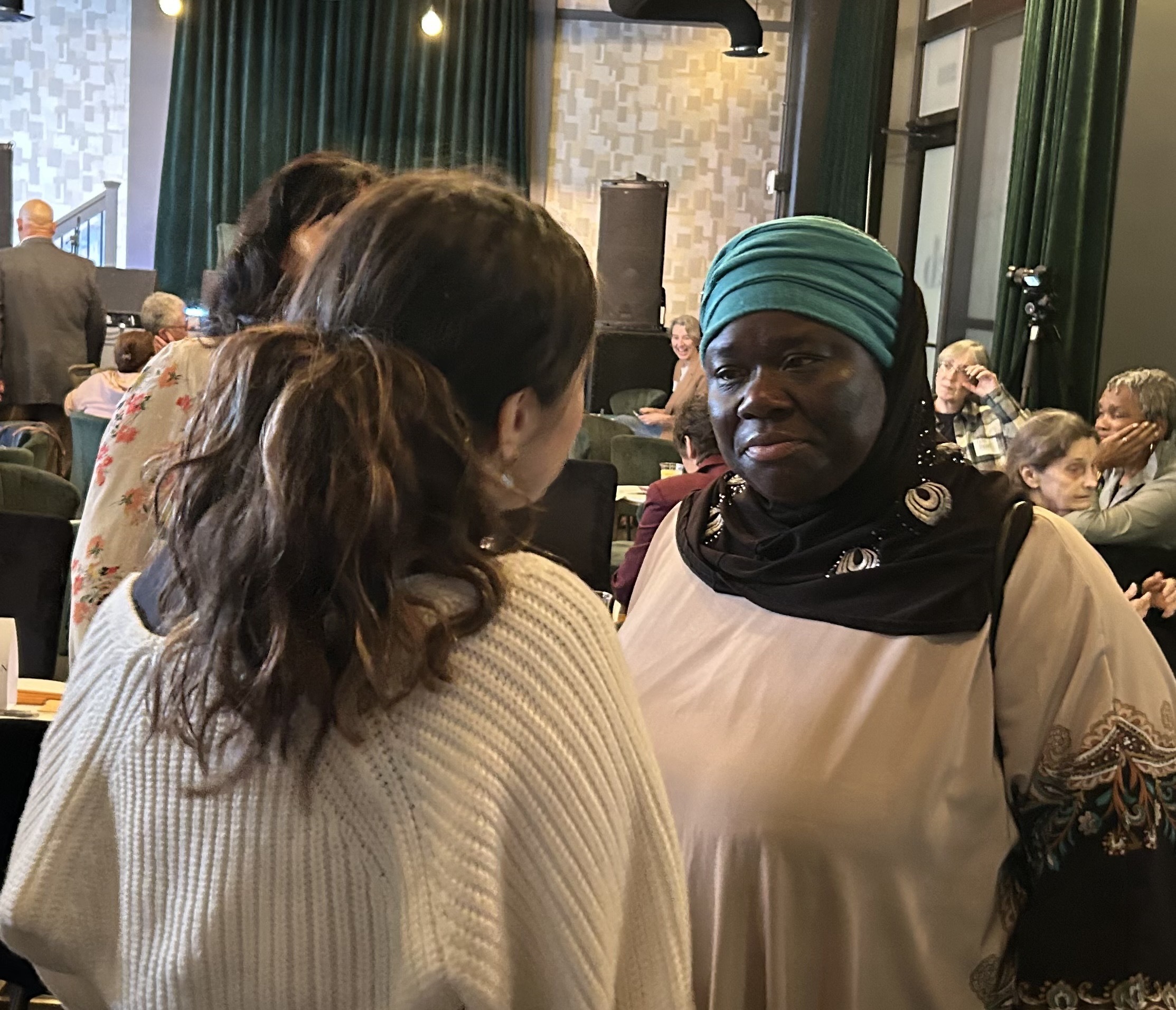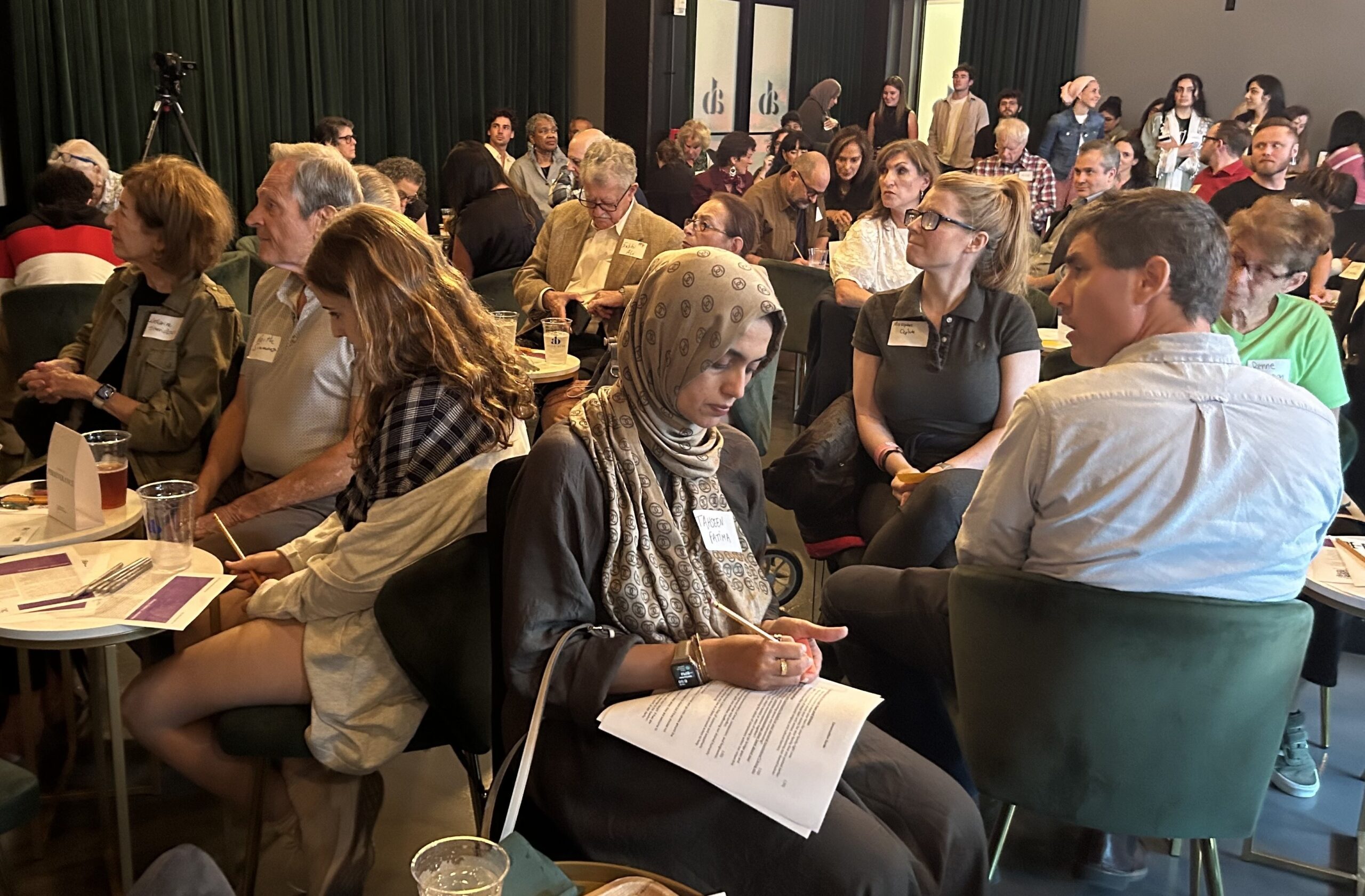
As the Israel-Hamas war continues with mounting civilian casualties, many in Nashville are struggling to figure out how to talk about Israel and Palestine and the conflict in Gaza.
On Thursday, over 120 people came together to do just that at an event hosted by Millions of Conversations, an organization focused on bridging divides, alongside Vanderbilt University, the Jewish Community Relations Committee, the Metro Human Relations Commission and the Islamic Center of Nashville.
Over the course of two hours, attendees including artists, public school teachers and Mayor Freddie O’Connell gathered around small tables for a guided discussion.
 Rose Gilbert WPLN News
Rose Gilbert WPLN NewsCouncilmember Zulfat Suara encouraged local lawmakers to attend to better understand the impact the conflict was having on Nashville. Several, including Mayor Freddie O’Connell and Councilmembers Jacob Kupin and Jennifer Gamble were there, as was state Sen. Jeff Yabro.
The evening began with comments from speakers representing Nashville’s Jewish, Muslim and Christian communities, among others.
Rabbi Shana Mackler from the Temple Congregation Ohabai Sholom, spoke frankly about feeling let down by many of her friends and their response to the initial attack by Hamas on Oct. 7, during which about 1,400 people were killed and more than 200 were abducted.
“‘What did you expect?’ I was asked. ‘What did you expect?’ Not this. Never this,” she said. “I’m just disappointed and gutted and so very, very sad. I didn’t expect to have to defend our dead or justify my grief. I didn’t expect to be shamed online or publicly for my connection to Israel, or my family, my land and my people.”
“I expect all of our hearts are big enough to love all and to grieve for all … May God help us to continue to hold together our collective broken hearts,” she added.
Then, Sheik Osama Bahloul from the Islamic Center of Nashville spoke about comforting a member of his congregation who had just lost 30 members of their family to an Israeli airstrike on Gaza.
“They all died with the exception of their mom. To be very earnest, I pray for her to die. She is in critical care. If this woman were to make it out of the hospital, she would realize the loss of her entire family,” he said.
More than 7,000 people have been killed in Gaza so far, including nearly 3,000 children.
The Gaza Strip is small and densely populated. It has been under blockade for 16 years, which means people living there can’t easily leave.
“We have to seek a peaceful solution,” said Bahloul, “because if a child is being bombed today in Tel Aviv or Gaza, most likely they will grow up to be radical. Because what can the child do after his own or her own parents have been killed?”
When the two faith leaders passed each other on stage, they shook hands.
“It was the most powerful moment of the night for me,” said Steve Venick, one of the attendees.
Venick, who is Jewish, said he tried to replicate that kind of vulnerability and honesty while going through prompts with his own small group — and feels like they mostly succeeded.
“It was really meaningful because I’ve been feeling pretty isolated in the grief and the trauma of everything that’s happened since Oct. 7,” he explained.
Now, he’s inspired to keep the discussion going.
“I think it was a great start,” he said. “The real test is: Can we take these conversations out into the world and have them with the people we come across in our real lives that hold very, very different views than us?”
 Rose Gilbert WPLN News
Rose Gilbert WPLN NewsAttendees were asked to write down their hopes and fears for their families.
Millions of Conversations is in the process of planning a follow-up event. The organization’s founder, Vanderbilt professor Samar Ali, is an international conflict resolution expert who works with the United States government and the United Nations.
“It took a lot of courage for people to come into this room tonight, especially with emotions as raw as they are and feelings as bruised as they are right now,” said Ali.
Ali explained that she believes these kinds of community conversations are vital to prevent people from demonizing one another, as is common on social media.
“We have to counter dehumanization efforts that are happening online. Communities have got to come together now more than ever … This is not the time to be hopeless.”

